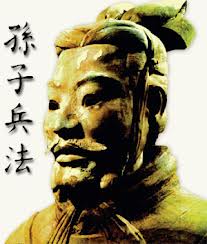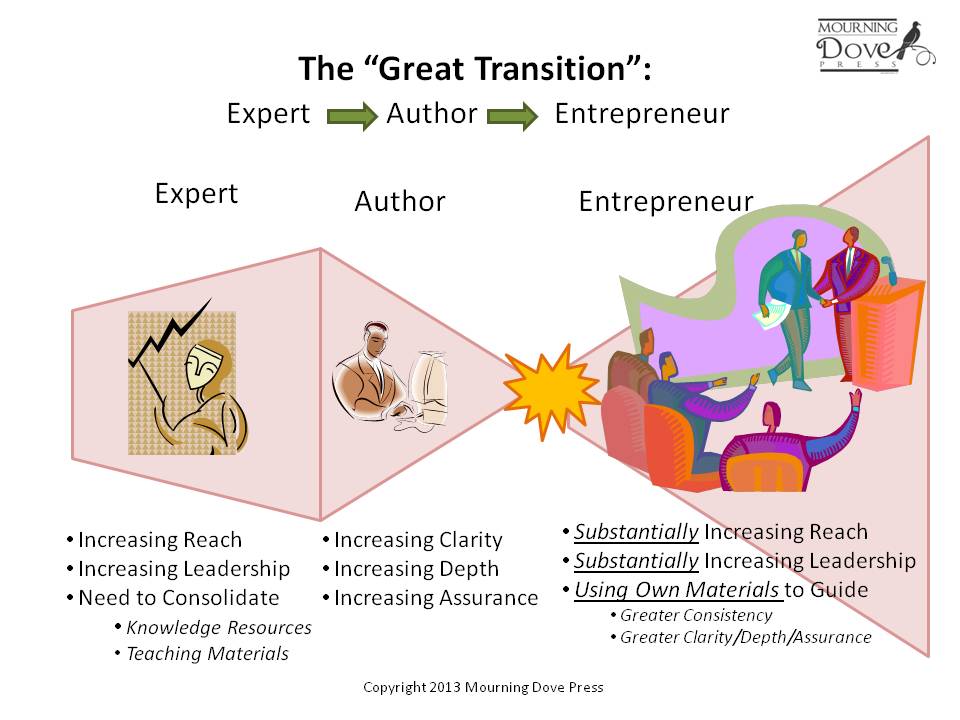Before Starting a Business or Launching Your Social Marketing Campaign: Know That You Have Sun Tzu’s “Moral Influence”
Before we move ahead – as authors, as entrepreneurs about to start a business, or as both – we can apply concepts from Sun Tzu’s The Art of War. This time-honored classic is relevant today for social marketing campaigns and to guide advertising for a small business. This is especially important if you are about to start a small business. Before you open a business, be sure to study The Art of War!
Even if yours is a home business, the business strategy recommended here – based on Sun Tzu’s writings – is essential. First, we need to assess ourselves using Sun Tzu’s “five fundamentals.” The first of these is “moral influence.”

Sun Tzu, author of the Chinese military strategy classic, “The Art of War.”
In Chapter 1 of Sun Tzu’s The Art of War, he identifies his “five fundamentals”:
- Moral Influence,
- Weather,
- Terrain,
- Command, and
- Doctrine.
(Go to Kingmaker to learn how each of Sun Tzu’s “five fundamentals” applies to the early-stage author/entrepreneur.)
Sun Tzu opens his second chapter by estimating the cost, per day, to field a large army. He makes it very clear that waging war (or in our terms, mounting a marketing campaign) is an expensive business. It will place a huge toll on a nation’s (or business’s) reserves.
So, before making campaign plans – whether for military, political, or business – we each need to ask ourselves, “Do I have the ‘moral influence’ that will impel me to see this through?”
What Exactly Is “Moral Influence”?
Chang Yü (whose comments on Sun Tzu’s initial writings are included in most versions of The Art of War) said:
“The systematic order above is perfectly clear. When troops are raised to chastise transgressors, the temple council first considers the adequacy of the ruler’s benevolence and the confidence of their peoples.”
Sun Tzu further explained:
“By moral influence I mean that which causes the people to be in harmony with their leaders, so that they will accompany them in life and unto death without fear of mortal peril.” (Chapter 1, Sentence 4)
Chang Yü’s comment on this is:
“When one treats people with benevolence, justice, and rightousness, and reposes confidence in them, the army will be united in mind and all will be happy to serve their leaders. The Book of Changes says: ‘In happiness at overcoming difficulties, people forget the danger of death.'”
So what do “temple councils” and the “ruler’s benevolence” have to do with us?
Everything.
Translating Sun Tzu’s “Moral Influence” into a Social Marketing Campaign or Starting a Business
We don’t really need Sun Tzu’s writings to know that a marketing campaign will tax us greatly – in time, energy, and money. Our families and closest friends will “feel the pain.” We’ll have less time to spend with them, and less money for fun. Austerity, coupled with less “personal time,” will put a strain on everyone.
Thus, before we even begin, we have to know that the people closest to us are on our side.
Even more, we have to know – in our deepest heart of hearts – that we have something of great value to offer. We have to be supremely convinced of this value.
Further, each of us must be deeply convinced that we are the best person in the world to carry out this mission. This can’t be delegated. It’s our personal vision; our raison d’être. Our personal vision has to be so compelling, so authoritative, and so commanding, that others are willing to support us – well before the accolades, success stories, and profits come rolling in.
Your Private “Temple Council” – Your Advisory “Inner Circle” Guiding Your Business Launch
Chang Yü (see quote earlier in this post) said that the “temple council” will consider the “adequacy of the ruler’s benevolence and the confidence of their peoples.”
The “temple council” is your private, typically informal, “inner circle” of business advisers. These are your “go-to” people; those whom you turn to for the deepest wisdom and guidance. You select them not only because of their smarts and savvy, but also their wisdom and spiritual maturity.
Your “temple council” will be the ones who will ask you: “Are you really ready for this?” And, “Is what you’re proposing really worth the pain that everyone will go through?”
You have to know that you’re ready.
Do You Have “Adequate Benevolence” to Start a Successful Business?
In helping you determine if you’re “launch-ready,” your “temple council” – your private “advisory inner circle” will first make their own assessment of you. They will consider the “adequacy of [your] benevolence and the confidence of [your] peoples.”
Your “benevolence” is a significant factor. Will your book, product, or service really be a benefit to others? Will it really help people in a strong, useful, meaningful way? Is what you are proposing really “benevolent”?
Second, your “temple council” will assess your personal maturity. They’ll ask themselves – and you – “Do you really have the whole-hearted support – the confidence – of the people in your life?”
You may not be asking your spouse, significant other, or family to follow you “unto death” in battle, but you may very likely be asking them to sacrifice vacations, luxuries, and time with you. Do those around you have confidence in you and your vision?
Do you have what Sun Tzu describes as “moral influence”? Do you have mastery of the remaining four of his “five fundamentals”?
Learn how to apply Sun Tzu’s The Art of War to your business launch or marketing campaign.
Join me – “Opt-In” using the form to the right. I’ll give you a “heads-up” when I publish the next strategic step that will help you evaluate where you are with each of the “five fundamentals” – and apply them to your own venture!
Before any politician embarks on a campaign, his or her inner circle carefully considers the politician’s spouse or significant other, as well as the most important and connected family members. Are they “confident” in this person? Will they “follow” her or him?
Before promoting an officer to the more senior ranks, the military commanders consider the officer’s spouse as a factor in the selection process. Is the spouse supportive in a useful and sustaining way? The next promotion will mean even more challenges; will the officer’s spouse help this officer succeed?
In one company which I co-founded, two of my male colleagues – part of the “initial five” – had wives who brought in six-figure incomes. Their financial support for their husbands made it possible for the husbands to focus on the new venture. They had to have the confidence of their people (their wives and children) in order to move ahead.
How To Know If You’re Really Ready to Launch Your Business or Start a Marketing Campaign
If you’re an author, the answer is usually clear. The book is done. You’re holding a copy in your hands.
Perhaps it’s not yet done, but there is enough of a draft manuscript so that you can put it down in front of someone and say, “Here. Read this.”
If you’re a product developer, you can take someone to a website and say, “Here. Try out this beta version.”
Even a good, solid, well-thought-out business plan – one with a compelling case, good research, and strong financials – can be “ready enough.”
Most often, there needs to be some prototype (in the case of a product), or some track record of providing the kind of service that you’re proposing. That’s why most initial, or “angel,” funding is for prototype development.
Government Small Business Innovative Research (SBIR) awards are first for small (typically $100K) “Phase I” proof-of-concept efforts, and then – if the “proof” is sufficiently convincing – for a (typically closer to $1M) “Phase II” prototype development. In order to get the Phase II funding, a company will have to show that the “commercialization transition” has already been worked out; a major company with strong revenues and an established product/service line is willing to take the new invention to its clients. This is where the “people” (the established transition-sponsor company) have “confidence” in the new company’s invention.
Assessing Your Own “Moral Influence”
Before you “go to war” – start your marketing campaign – you need to be sufficiently together; enough to have your own compelling sense of “moral influence.” You will know that you are ready – not when you have sufficient money in the bank, or a “finished enough” book/product/service – but rather, when you can say “yes” to these criteria:
- Temple Council Approval: Your “temple council” – your private advisory “inner circle” – gives you the “go-ahead,”
- You’re Sufficiently “Benevolent”: You are absolutely convinced that your book/product/service is “benevolent” – it will bring value to other people’s lives – and you can specify how, and
- Your People Have Confidence in You: The people closest to you – those whom you’ll rely on for support through thick and thin (and there will assuredly be “thin”) – give you their confidence in specific, tangible ways – such as reading and critiquing your manuscript, giving you encouragement to take your product public, and/or helping you out financially.
This morning, I received a sympathy card and a gift from my sister. My much-beloved cat, “Cuddles,” had died two weeks ago. She did this to encourage me; she had “confidence” in me. Other friends had banded together to help me get Cuddles’ remains cremated. They took me to the crematorium, and one of them picked up the box of ashes the next day. Another brought by a picture of me with my cat; it had been taken when we were both glowing with healthy vigor.
Any one of these people could have said, “Why are you putting yourself through the stress of a new start-up company? Why aren’t you getting a ‘day job’? Why aren’t you going for financial security; a job with good pay and nice benefits?”
Instead, they had confidence in me – and in the “benevolence” of my vision. I’ve shared with them what I’m sharing with you; insights about how to launch a well-structured, orderly, solid business and marketing campaign. They see that my approach is solid, and when the challenges come, they support me.
Before you launch, be certain that your “temple council” believes in you, and that your “people” have “confidence” in your vision and in your ability to bring your vision into being.
With whole-hearted best wishes for your own success –
Alianna
Alianna J. Maren, Ph.D.
Founder & Creative Visionary, Mourning Dove Press
Copyright, 2013. Alianna J. Maren. Used by Mourning Dove Press, with permission. For all reproduction, please inquire: alianna1 (at) gmail (dot) com. All rights reserved.






